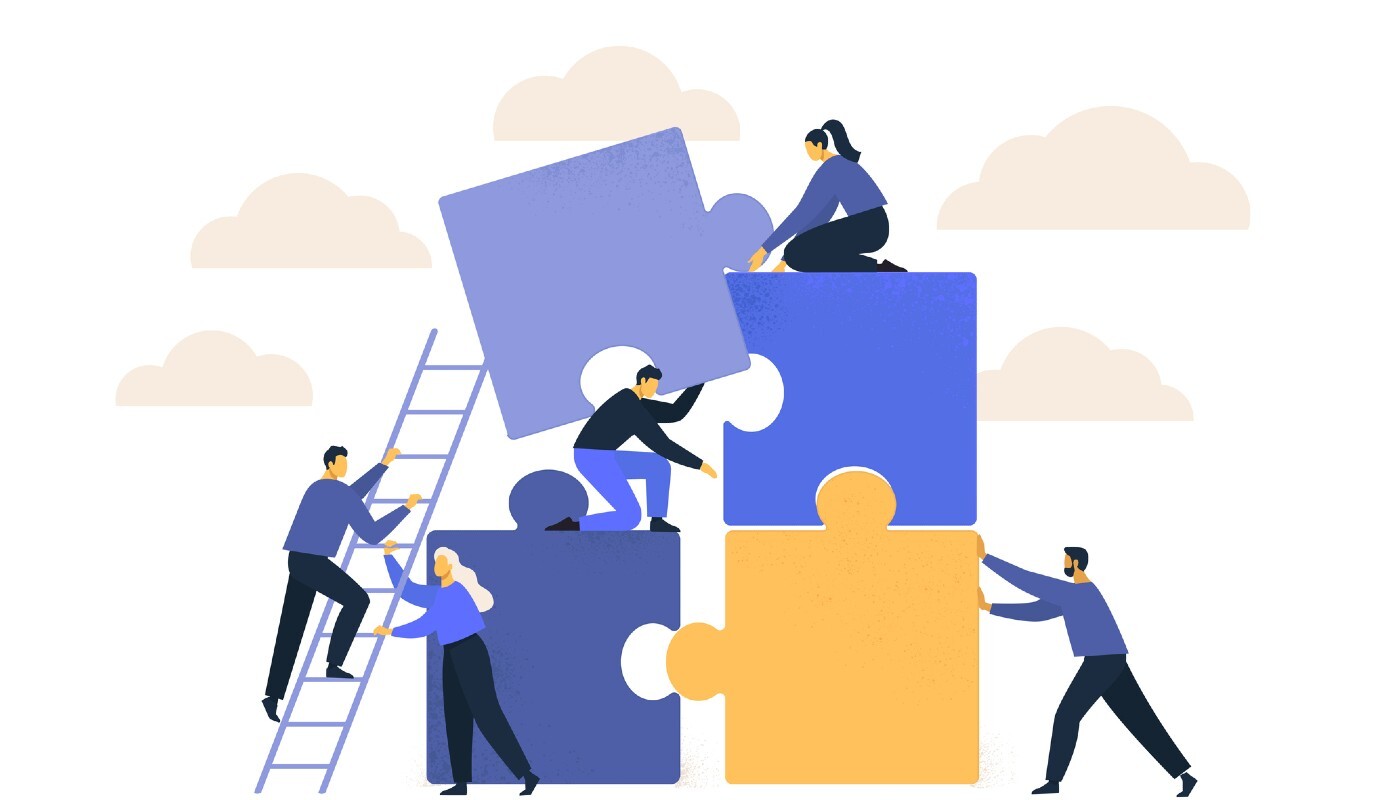
Much has been written about the gaping holes in the skill sets of workforces as we prepare for the future of work. The good news is that experts believe it’s not as bad as we might think.
Common across most of the research around the future of work, and the skills required to carry out that work, is a lack of confidence that employees will be able to acquire those skills easily and quickly.
Therefore, the problem of a skills gap, as we are launched by the pandemic into the ‘future of work’ sooner than we anticipated, is a real one, says Aaron McEwan FAHRI, Gartner’s VP of research and advisory. However, he is quick to point out that the problem is often overstated.
“I would look at the general response employees had to the shift to remote working during the pandemic as a pretty good indicator that we’ve probably misjudged our employees,” says McEwan.
“They have proven to be highly capable of upgrading their skills in response to a massive and urgent need for them to do so.”
The majority of organisations, says McEwan, are at least part way into a process of digital transformation. One concern businesses have is that employees won’t have the digital dexterity to keep up with such a transformation. Once again, this concern is justified but probably not as desperate as many might think.
“Digital dexterity is the ability to use and manipulate emerging and existing technology to drive business impact,” he says. “Here again, I think we do our employees a disservice.
One of the reasons employees aren’t keeping pace with the technological requirements of the organisation is that most organisations are still investing in unintuitive technology.
“If you look at the average person in Australia – a nation famously populated by early adopters of emerging consumer technology – in their private lives most individuals are using cutting-edge technology. But when we come to work, we’re faced with unintuitive, clunky systems. Then, organisations wonder why employees struggle to adapt to it,” says McEwan.
KPMG’s 2020 HR New Reality Pulse Survey backed up the argument that digital dexterity is a big-ticket item in terms of future workforce skills. After interviewing 1,300 HR executives, it found more than three in ten employees will need to be reskilled to fulfil growing demand for digital capabilities.
Outside of technology, what are the skills experts believe will fuel success in the future of work? Interestingly, many future skills requirements will be far more human, they say.
From head to heart
Dr Jim Stanford, economist and director of the Centre for Future Work at The Australia Institute says, it’s important to recognise that despite all of the hype around robots and artificial intelligence (AI), our jobs haven’t actually changed much since such technology was first introduced.
“In fact, if anything, our jobs have probably become a little bit grittier and harder to perform,” says Stanford.
“Of course, we’ve all learned how to do Zoom calls and some of the other mechanics of working from home. But even then, it hasn’t fundamentally changed the nature of work. The people who can work from home are people who were already doing most of their work on computers,” he says.
In his organisation’s research, it has been revealed that employers aren’t necessarily interested in particular skills as much as they are looking for the capacities of their workers as human beings.
A large number of employers, says Stanford, are more interested in skills such as leadership, communication, teamwork and collaboration.
Of course, HR professionals know these skills can’t just be taught, but must also be enabled by the culture of the organisation. Hence, of vital importance to the organisation is HR’s guiding hand in shaping that culture.
“HR is the steward of that culture, helping facilitate its development. HR must work alongside senior leadership to put into practice initiatives that help drive the way of working that the organisation wants,” says Susie Quirk, head of HR advisory at KPMG.
Even when discussing human traits and organisational culture, the influence of technology is never far away.
Pip Dexter, national lead partner for Human Capital at Deloitte, says technology allows us to play to our strength as humans.
“We’ve seen, particularly in this global pandemic, that you need skills around empathy and problem-solving,” says Dexter. “When you think about the complexity of the world, we’re never going to be short of problems, so there’s always going to be demand for those human skills.”
A 2019 Deloitte report describes a shift in future skills from head to heart. In other words, rather than the cognitive skills of the head, or the manual skills of the hands – both of which are increasingly easy to automate – the jobs that use our hearts will be in greatest demand. These skills include creativity, customer service, care for others and collaboration. The COVID-19 pandemic has only further propelled the importance of cultivating these ‘heart skills’.
“I would look at the general response employees had to the shift to remote working during the pandemic as a pretty good indicator that we’ve probably misjudged our employees,” Aaron McEwan FAHRI, VP of research and advisory, Gartner.
Prepare for the future
The problem with attempting to predict the necessary future skills, says Stanford, is that you are doomed to fail.
“We can’t know the exact mix of attributes employers are going to look for [in the future]. Some of the knee-jerk advice that students have been given, like focusing on STEM, hard tech skills and computer programming, hasn’t necessarily resulted in better employment opportunities.”
What does this mean for HR professionals looking to help create the workforce of the future? It means they need the ability to see, in real time, exactly what’s going on within and around the organisation and its market, in terms of talent.
A research paper from Gartner describes a dynamic skills approach.
“Picture a hockey rink,” the report reads. “HR thinks it needs to skate ahead of the hockey puck to where the puck will be. But it does not actually know where the hockey puck will go. HR could end up at the other end of the rink before it realises it’s nowhere near the puck. Instead, HR should skate with the puck, sensitive and aware of its movement, ready to respond to changes and course-correct when it starts to get away.”
This approach works because it allows HR practitioners to sense shifting skills in real time, meaning they can develop workforce skills at the time of need. It also helps employees to identify their own upskilling opportunities for the good of the organisation as they recognise a real and relevant need.
Quirk says it can be difficult for HR professionals to achieve real-time insight because some have skills gaps themselves.
Before becoming dynamic decision-makers and insight providers for their organisations, they themselves must reskill.
“HR professionals have been skilled in certain competencies and capabilities to deliver on a particular type of operating model, which is HR as a business partner. But that model is changing with more digital automation,” she says. “HR must adapt its operating model to put digital capability at its core.”
For HR to deliver its primary value to the business, it must be able to offer insight into what’s happening in the workforce in real time.
One of the key skill requirements we’ll see in the HR function, says Quirk, is a deep understanding of data and analytics. For some HR professionals, this is an entirely new skill set and one that needs to be quickly mastered as the people department develops more influence than ever before.
Learning on the job
We’re moving beyond IQ and EQ (emotional intelligence), says Dexter, today, the focus is on ‘AQ’ – a person’s adaptability.
“Personal adaptability is going to be one of the critical strengths we will look for in workforces,” says Dexter. “To build such traits, one of the critical things we have to do is make people feel safe to learn.
“This might begin with leaders sharing their own vulnerabilities or sharing stories of times when they didn’t know how to do something, then learned how to do it.
“It also means rewarding the right behaviour. It’s important for businesses to recognise when people are trying to learn new things and reward that effort, rather than criticising if they don’t perform.”
With new technologies, Dexter recommends rather than sending people to training sessions, wait until the technology is absolutely relevant to their job. This creates an immediate reason for them to use the technology. After all, that’s how people learned how to use Microsoft Teams and Zoom when we first had to work from home.
“At a recent virtual off-site, the only way to participate was to use a particular digital whiteboarding tool,” she says. “We spent the first few minutes learning how to use it – one of our people simply gave a quick tutorial, then we used it all day long. That was a very successful way of building learning into the flow of work.”
HR needs to closely manage learning in the flow of work, rather than sending people to training courses en masse, where they often lack a deep motivation to learn. We also need to give knowledge workers the time and space to be human, to allow the creative process the room it requires. And this must all be done in real time, without trying to look too far into the future or the past. Much of this will be aided by technology.
“The fundamental value that technology adds is to be able to centrally manage role-based positions,” says Quirk. “That is critical to managing your workforce in real time.
“As long as you have the integrity of data, HR will have meaningful, competent, real-time and insightful conversations with their clients and business partners. Most importantly, there will be a level of confidence and boldness about strategic workforce planning. That boldness will be the differentiator between those who succeed and those who do not.”
Read More Updates…
Wishing you the warmth of the bonfire and the sweetness of til laddo – A very Happy Makar Sankranti to you and your family.
Yes Bank appoints Anurag Adlakha as new Chief Human Resource Officer
Waheguru Ji Ka Khalsa, Waheguru Ji Ki Fateh. Happy Guru Nanak Jayanti to you and your family.Waheguru Ji Ka Khalsa, Waheguru Ji Ki Fateh. Happy Guru Nanak Jayanti to you and your family.
NPS Schemes Deliver Returns Up To 22% In One Year. Will the trend continue?
Hiring now Magento Developer, Vue.js+ Laravel Developer, Full Stack .Net Developer, Sales, Marketing and Many More… Check for more details now!
